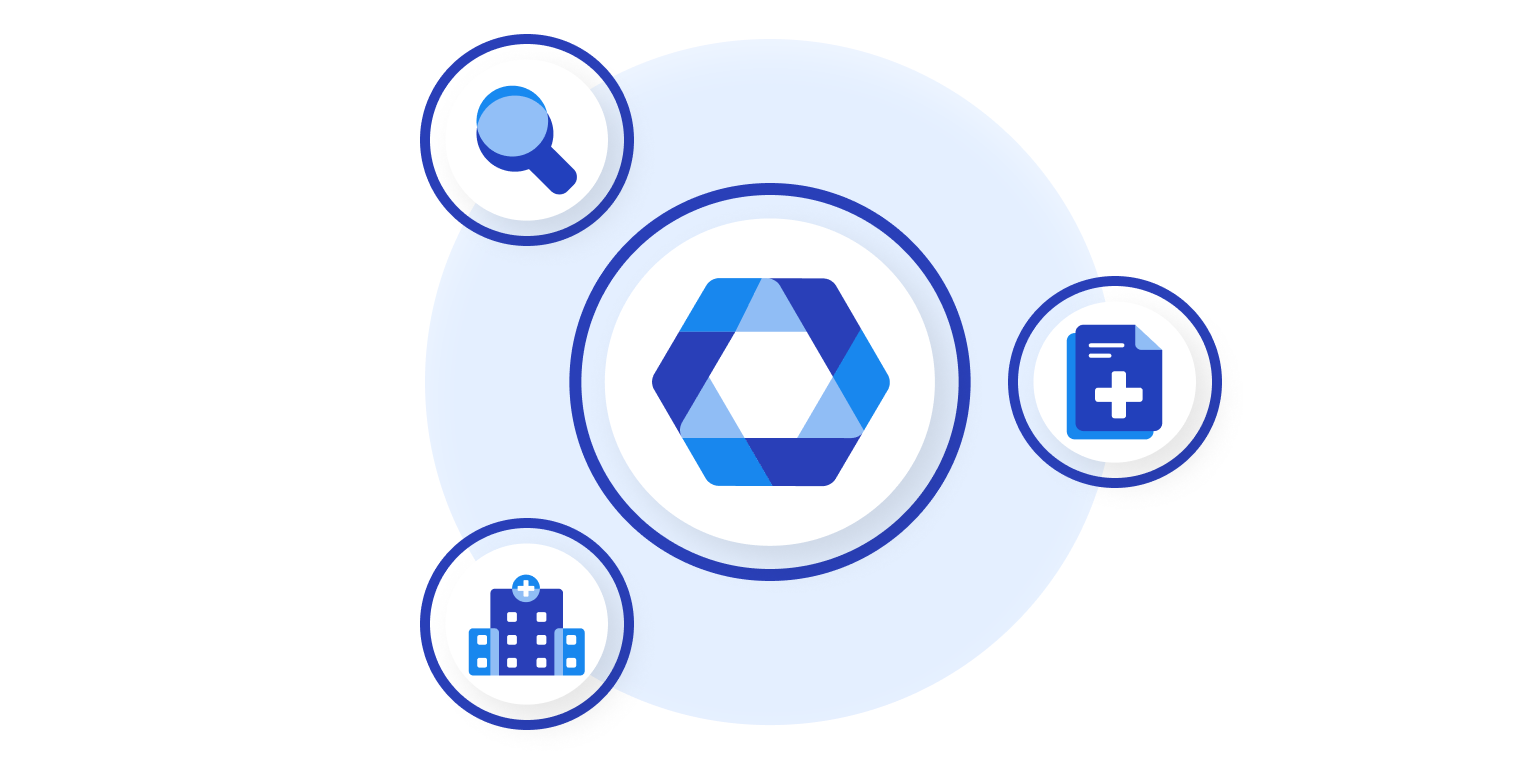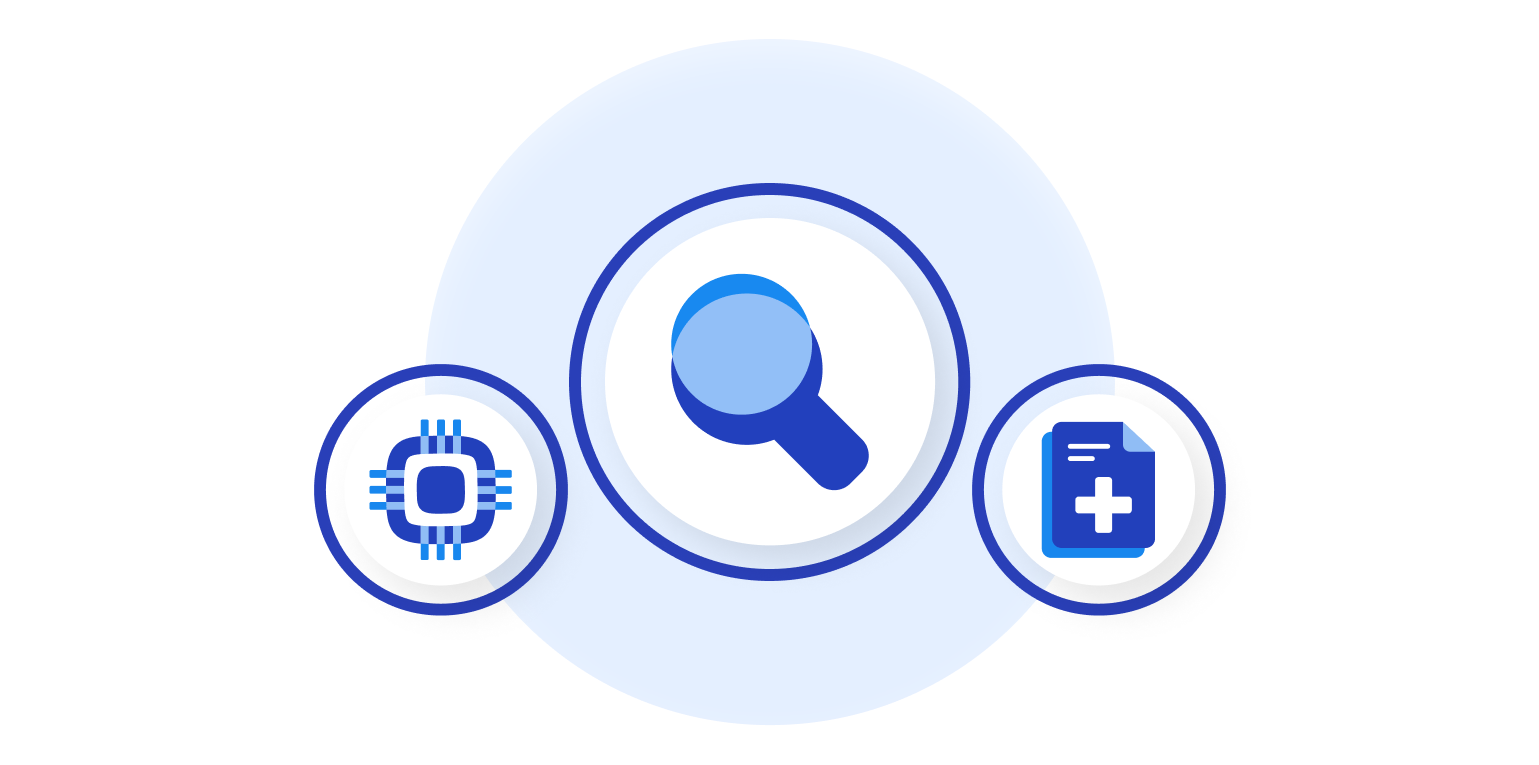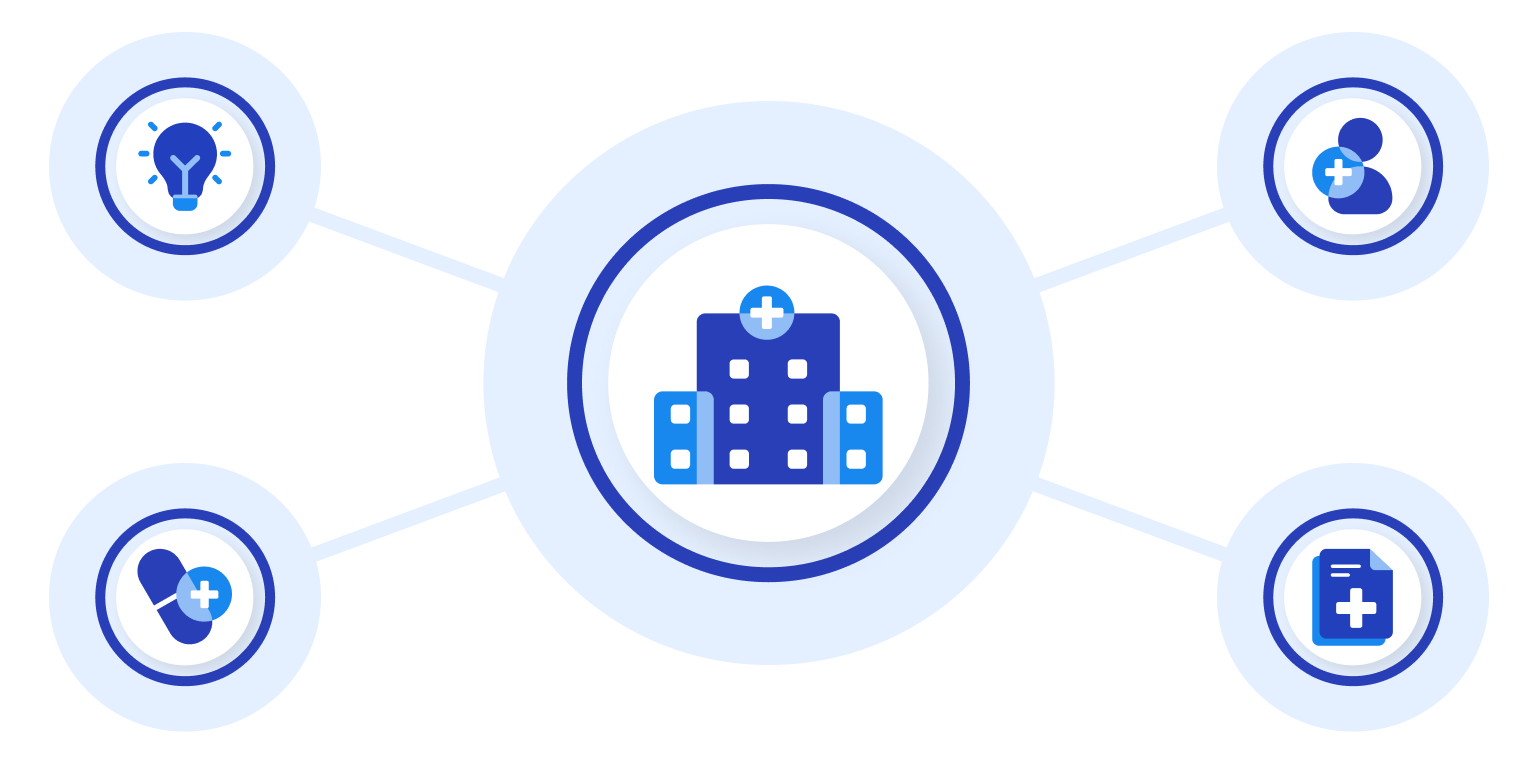Artificial intelligence (AI) has emerged as a groundbreaking tool in various sectors. Its ability to process vast amounts of data quickly and accurately and adapt based on what it learns makes it an indispensable tool today. Healthcare, more specifically, oncology, has seen significant transformations due to the introduction of AI.
This article explores how AI is revolutionizing how we detect, diagnose, and treat cancer, enabling a significant shift toward precision medicine.
Understanding Artificial Intelligence in Cancer Care
Understanding the role and potential of AI in cancer care starts with understanding the basic concepts of artificial intelligence and machine learning.
Defining Artificial Intelligence and Machine Learning
Artificial intelligence (AI) is a field within the realm of computer science that concentrates on developing systems capable of replicating human intellectual capacity. It entails programming computers to process information, learn, reason, perceive, and interact in ways previously considered unique to humans.
Machine learning (ML), a subset of AI, involves training machines to learn from data, recognize patterns, and make decisions with minimal human intervention. The introduction of ML has led to rapid advancements in several fields, improving the processing of large, complex datasets beyond human capabilities.
In healthcare, AI and ML have shown great potential in understanding complex biological and medical data quickly and accurately, leading to significant improvements in patient care. Particularly in oncology, they’re transforming how we approach cancer care, from early detection and diagnosis to determining the most effective treatment strategies.
Grasping the Impact of AI in Cancer Care
The impact of AI in cancer care is profound. It can greatly improve detection, diagnosis, and treatment and provide promising outcomes for patients. Let’s look into the specifics of its role in early detection, precision diagnosis, and personalized treatment to fully understand how AI is revolutionizing oncology.
AI on Cancer Detection
Early cancer detection greatly increases the chances of successful treatment. Traditional techniques, while effective, sometimes fail to detect cancers at the earliest stages because of their inherent limitations.
This is where AI steps in, offering superior capabilities in early cancer detection. AI can quickly analyze medical images and identify small or unseen abnormalities.
AI’s strength is its ability to analyze large volumes of data rapidly and accurately. It can go through thousands of images quicker than a human, making it more efficient. Additionally, AI has improved sensitivity and specificity in cancer screening tests, resulting in fewer false positives and negatives.
AI’s role in early detection is crucial as it aids in diagnosing cancer at its most treatable stages, increasing the chances of successful treatment and survival.
AI on Diagnosis
Accurate diagnosis of cancer is crucial for effective treatment planning.
AI makes cancer diagnosis more precise and comprehensive than traditional methods. It can analyze genetic alterations, gene expression levels, and other biologically relevant data to identify the type and origin of the cancer. This helps oncologists understand the cancer better and plan more targeted treatments.
AI’s role in diagnosis is not limited to the cancer’s identification but extends to prognosis as well. It can predict the likely course of the disease, equipping healthcare professionals and patients with important information to plan the treatment effectively.
AI on Treatment
Artificial Intelligence has transformed cancer treatment by helping make personalized treatment plans based on each patient’s unique biological profile. AI can analyze a patient’s genes and the genetic mutations in the cancer cells to suggest the most effective treatments.
Beyond personalized treatments, AI also helps track how well a patient is responding to treatment by monitoring and analyzing data regularly and suggesting changes when needed.
AI can also improve existing treatment methods. For instance, in radiation therapy, AI can create detailed 3D images of tumors to target radiation doses accurately, reducing damage to surrounding healthy tissues. In chemotherapy, AI can predict how a patient might respond to different drugs, helping physicians choose the most effective drug combination.
AI in Cancer Detection: Beyond Traditional Methods
The role of AI in improving cancer detection is becoming increasingly apparent. Unlike traditional methods, which are often limited by human error and time constraints, AI provides a more comprehensive and accurate view of a patient’s health.
It can analyze different types of data simultaneously, including medical images, genetic data, and electronic health records, for a more holistic understanding of the patient’s condition. This helps in the early detection of cancer and significantly improves patient survival rates.
Case Studies of AI Advancements in Cancer Detection
To understand the potential of AI in cancer detection, consider the following real-life case studies:
Google’s Deep Learning Algorithm
Google has developed an AI system that can detect lung cancer in CT scans as accurately as expert doctors. This development is significant as lung cancer, the leading cause of cancer deaths worldwide, has a much better survival rate if detected early.
IBM’s Watson
Watson, IBM’s AI system, is another example of how AI can revolutionize cancer care. Watson can interpret genetic data and match patients with personalized treatments. In a recent study, it identified additional treatment options for 30% of patients that traditional tests missed.
PathAI
PathAI, a Boston-based startup, is developing AI-powered research tools to help pathologists diagnose disease. In clinical trials, the PathAI system was more accurate and faster in detecting breast cancer than human pathologists. These findings underscore the potential of AI in improving the accuracy and efficiency of cancer detection.
AI in Cancer Detection
AI is changing how we detect cancer by being able to understand complex patterns in medical data that can be challenging for human analysts. It can get meaningful insights from vast datasets, improving early cancer detection and diagnosis.
Advancements in AI for Cancer Detection
AI has greatly improved our ability to detect cancer early. It can analyze a broad range of data, such as genetic markers and radiographic images, and identify subtle patterns that may indicate the presence of cancer cells, even before symptoms appear.
These algorithms are trained on vast datasets and continue to learn and adapt over time, enhancing their accuracy. Not only does this lead to a reduction in false positives, but it also ensures potential malignancies are spotted early on, even when their signs are small and easy to miss.
AI in Imaging and Diagnosis
AI plays a key role in diagnostic imaging. It can analyze radiographic images with unparalleled precision and identify early signs of cancers that might otherwise be overlooked.
For instance, consider the case of lung cancer typing. AI can analyze CT scans to detect small nodules or changes that might indicate the onset of lung cancer. It can also differentiate between various types of lung cancer based on these scans, enabling a more precise diagnosis.
This early and accurate detection is critical as it allows for early intervention and improves patient outcomes.
AI in Cancer Treatment
AI’s impact on cancer treatment is just as significant as its role in detection and diagnosis. AI enables informed treatment decisions, creates patient-specific treatments, aids in drug development, and improves various modes of treatment.
AI-Driven Treatment Decisions
AI’s ability to analyze vast amounts of data from medical literature, clinical trials, and patient records can empower physicians to make more informed treatment decisions. By providing insights into the most effective treatments based on similar patients and outcomes, AI can improve patient outcomes.
Patient-Specific Treatment Regime
One of the most promising uses of AI in cancer care is facilitating personalized treatment. It can analyze a patient’s unique genetic makeup and the genetic profile of their tumor to provide personalized treatment recommendations. This makes treatments more effective and lowers the risk of side effects, significantly improving the quality of patient care.
AI in Drug Development
Drug development is a critical aspect of cancer care. It usually involves a lot of trial and error and can take years, even decades, to result in an effective and safe treatment. However, AI can significantly speed up this process.
Using ML models, AI can predict how different drugs will interact with specific genetic profiles, helping find potential treatments earlier. It can also evaluate the safety and efficacy of drugs more accurately, minimizing the risk of unsuccessful clinical trials. This could result in more effective cancer treatments reaching patients sooner.
AI in Different Modes of Treatment
The applications of AI extend across various cancer treatments, including chemotherapy, radiotherapy, and immunotherapy. By analyzing individual patient data, it can predict response to treatment and optimize treatment delivery. This not only makes the treatment more effective but also reduces the risk of side effects, improving the patient’s quality of life.
Chemotherapy
AI is used to make chemotherapy, one of the most common cancer treatments, more effective and easier to tolerate. By analyzing patient-specific factors, AI can predict how a patient will respond to different chemotherapy drugs, enabling physicians to choose the most effective drug combinations.
Additionally, AI can help determine the best dosage to maximize the treatment’s effectiveness while minimizing harmful side effects.
Radiotherapy
AI also improves the accuracy and effectiveness of radiotherapy. It can be used to create detailed 3D models of tumors, which helps to accurately target radiation doses while protecting surrounding healthy tissue.
Furthermore, AI can predict optimal radiation doses and adjust treatment plans in real time based on how the tumor responds, significantly improving treatment outcomes.
Immunotherapy
AI is crucial in predicting patient response to immunotherapy, which uses the body’s immune system to fight cancer.
By analyzing genetic data, it can identify which patients are likely to respond to immunotherapy, leading to more effective patient selection. It can also predict potential side effects, enabling physicians to manage them effectively and improve the patient’s quality of life.
This personalized approach to immunotherapy, enabled by AI, holds great promise for improving cancer treatment.
The Drawbacks and Pitfalls of AI in Cancer Care
Despite its significant benefits in cancer care, the application of AI presents certain challenges and drawbacks that need to be acknowledged and addressed.
Data Privacy in AI Applications
In the age of digital healthcare, data privacy is a huge concern. AI often uses large datasets, which could expose sensitive patient data to misuse or a data breach.
While laws like the General Data Protection Regulation (GDPR) in Europe provide a regulatory framework for data protection, the unique challenges posed by AI require these rules to be further developed.
We must implement robust privacy protocols, ensure secure data transmission, and use encrypted storage to safeguard sensitive patient data. Moreover, as AI continues to advance, we need to develop technologies that allow AI models to learn from data without actually accessing it to preserve privacy.
Fragmented and Complicated Data
Additionally, the complexity of health data, particularly genomic data or electronic health records, makes it difficult to process and interpret accurately. To make the most of AI, we must develop robust, standardized processes for managing data, including collection, storage, integration, and interpretation.
The Future of AI in Oncology
Despite the challenges, AI has a promising future in oncology. With the development of new tools and applications, it’s clear that AI has significant potential to bring further improvements to cancer care. However, these advancements also pose new challenges that need to be addressed.
Future Prospects and Challenges
AI’s precision, efficiency, and ability to continuously learn and improve make it a promising tool for revolutionizing cancer care.
However, challenges such as ensuring data quality, managing the high volume of data, and integrating AI into existing healthcare systems persist. Addressing these will be key to realizing AI’s full potential in oncology.
Evolving AI Tools for Cancer Imaging
AI tools are quickly developing, and their application in cancer imaging is becoming more refined. For instance, convolutional neural networks, a type of AI algorithm, have significantly improved the interpretation of cancer imaging studies. However, refining these tools for practical application and ensuring their accuracy and reliability are still considerable challenges.
AI in Classifying Different Types of Cancer
AI’s ability to analyze vast amounts of data quickly and accurately makes it an effective tool for classifying different types of cancer. Accurate classification is crucial for choosing the most effective treatment strategy and predicting patient outcomes.
Improving these technologies will further increase the accuracy and efficiency of cancer classification, leading to better patient care.
The Emerging Roles of AI in Precision Therapy
One of the most exciting developments in oncology is the rise of precision medicine, which involves customized treatment plans based on each patient’s unique genetic makeup.
AI’s ability to analyze vast amounts of genetic data and predict treatment response is expected to be pivotal in this endeavor. As AI algorithms become more advanced, their potential in precision medicine will continue to grow, potentially changing the future of oncology.
Leveraging AI for a Breakthrough in Cancer Care
Artificial intelligence is breaking new ground in oncology, bringing revolutionary changes to cancer detection, diagnosis, and treatment. AI’s ability to analyze vast amounts of complex data quickly and accurately is changing our approach to cancer care, leading to earlier detection, more accurate diagnoses, and more effective treatments.
Despite the challenges, such as data privacy, system integration, and data fragmentation, the future of AI in oncology looks promising. By nurturing a collaborative relationship between AI and healthcare professionals, we can work toward a future where cancer is detected earlier, diagnosed more accurately, and treated more effectively.
This will undoubtedly lead to better patient outcomes and survival rates, bringing us closer to winning the battle against cancer.
As we continue to harness the power of AI in cancer care, we should always remember our common goal – a world where cancer is no longer a deadly disease but one that can be managed effectively with the help of AI.












